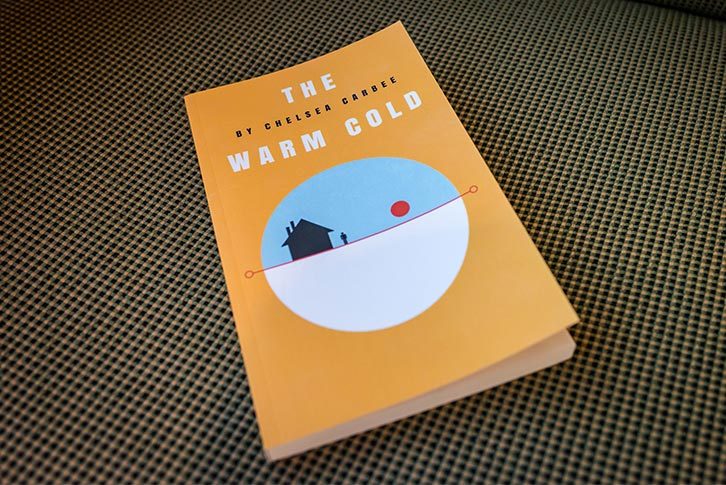Good writers know that compelling characters are often contradictory. Take Marvel superhero Matt Murdock — blind lawyer by day, vigilante by night — or Jesse Pinkman, the drug dealer with a heart of gold on Breaking Bad. Contradictions make a story more interesting by subverting an audience’s expectations. They also express a seeming paradox of life: People are one thing, but they’re also another.
“That’s life,” writes Chelsea Carbee '19 of Chester, N.H., in her blog, where she keeps readers updated on her writing projects. She also offers this advice: “In your own life, look for the contradictions in people you care about. You’ll feel more human and so will your characters.”
Carbee herself is a bit of a contradiction: she’s a nursing major who loves to write. This summer, she self-published her first novel.
Inspired by a report Carbee heard on NPR, The Warm Cold follows a research crew of scientists stuck atop Mount Denali during a winter storm. It’s a story about survival and a testament to the human will to live.
Though she initially wanted to use the idea behind The Warm Cold to complete an assignment for a creative writing class taught by Associate Professor of Humanities Ewa Chrusciel, Carbee realized she had something bigger to tackle than a short story. She decided to write a different piece for her assignment and turn The Warm Cold into a novel.

Despite their supposed differences, Carbee finds that nursing and writing are both exercises in empathy and getting inside someone else’s head. One of Carbee’s favorite parts of caring for people is listening to their stories.
Her latest work-in-progress explores the concept of “a good death,” certainly a topic relevant to her profession. Carbee’s experiences with older patients have made her realize the importance of end-of-life care.
“It can be hard for someone who hasn’t had a lot of experience and is still in school to recognize that old people were young once, too,” Carbee said. “You can translate that concept into a story and make it interesting.”
Juggling clubs and a part-time job means Carbee has a packed schedule. Finding time to write is difficult, but she’s developed a routine: For every completed flashcard set or predetermined number of textbook pages read, she writes 200 words. Carbee alternates between her worlds for the whole day.
“It motivates me on both ends,” she says. “I think getting out of each frame of mind is super helpful.”
Looking ahead, Carbee hopes to keep writing while working in critical care before pursuing an advanced nursing degree. She’s been exposed to patients with a variety conditions during her clinical rotations on a medical specialties unit, a neuroscience surgical floor and a critical-care step down unit. She’s interested in oncology and palliative care, but knows that life rarely goes according to plan.
“There’s a longer list of things I’m interested in than not,” she said in reference to how she’s keeping her options open. It’s not a surprising statement, coming from her.